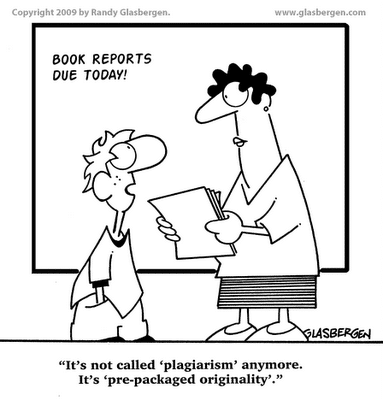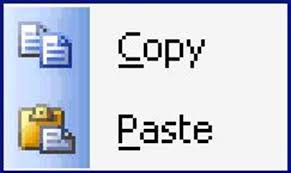

"But these cases — typical ones, according to writing tutors and officials responsible for discipline at the three schools who described the plagiarism — suggest that many students simply do not grasp that using words they did not write is a serious misdeed."
Because it's so easy to copy and paste, to Google and get the perfectly-worded answer, it's easy to think it's okay. We get constant streams of regurgitated information through the news (every channel with the same story) through twitter (copying someone's funny post) and other places around us, it becomes commonplace to "borrow" and "take" the "fair play" information around us.
“Because you’re not walking into a library, you’re not physically holding the article, which takes you closer to ‘this doesn’t belong to me,’ ” she said. Online, “everything can belong to you really easily.”
Illegally streaming movies or downloading music (please, we've all done it) without any consequences is just a stepping stone to downloading and essay or copying a few paragraphs here and there.
The ideal of original ideas and simple work has disappeared in a maelstrom of free information online. The lesson here is damage control and prevention. Don't do it, you'll get caught if you do. This is something you get online that has actual consequences.
In San Antonio last fall, I attended a lesson about Copyright Laws. Dull, you would think, but I learned a lot and the presenter kept our attention. Once anyone writes or creates anything - it becomes their intellectual and personal property. You can't legally take it without A) their express permission B) giving them credit and/or compensation C) it coming from a legal source with built in permission.
Watch what you copy,
Cheers,
Michelle

